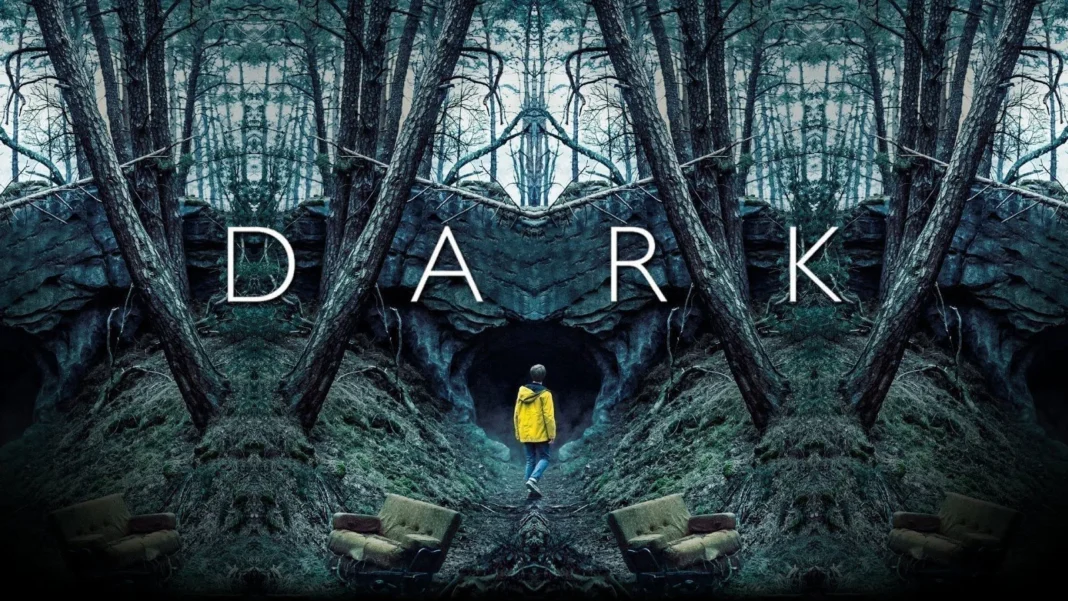In the ever-expanding realm of television series, a few stand out for their narrative complexity, philosophical depth, and production quality. Among these, “Dark,” a German science fiction thriller created by Baran bo Odar and Jantje Friese, emerges as a groundbreaking masterpiece. This Netflix original series, which aired from 2017 to 2020, has not only garnered a dedicated fanbase but has also received widespread critical acclaim. Here, we explore in detail why “Dark” is often hailed as the best web show of all time.
Why “Dark” is the Best Web Show of All Time?
In the ever-expanding realm of television series, a few stand out for their narrative complexity, philosophical depth, and production quality. Among these, “Dark,” a German science fiction thriller created by Baran bo Odar and Jantje Friese, emerges as a groundbreaking masterpiece. This Netflix original series, which aired from 2017 to 2020, has not only garnered a dedicated fanbase but has also received widespread critical acclaim. Here, we explore in detail why “Dark” is often hailed as the best web show of all time.
A Complex and Engaging Narrative
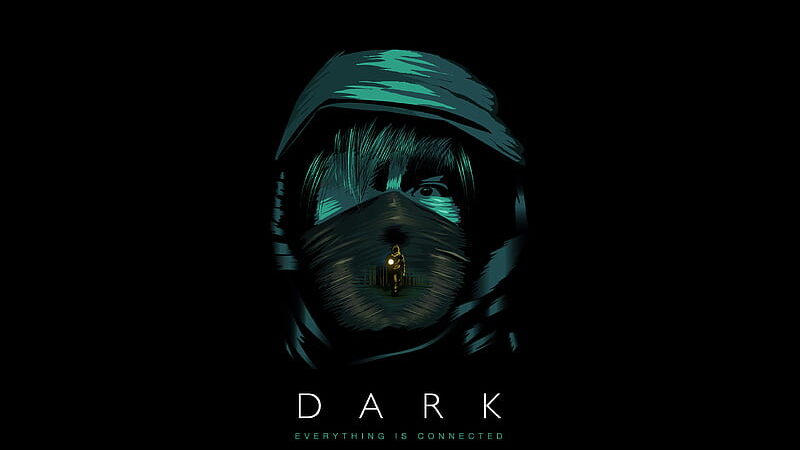
“Dark” demands and rewards viewers’ full attention. Set in the small German town of Winden, the story begins with the disappearance of two children, which unravels the secrets and hidden connections among four estranged families. What starts as a mystery involving missing children quickly evolves into a mind-bending exploration of time travel, alternate realities, and the interconnectedness of human lives.
As the series progresses, viewers are introduced to different timelines, spanning several generations. The narrative complexity is heightened by the fact that characters interact with their past and future selves, creating a rich tapestry of interwoven storylines. This intricate plot demands meticulous attention to detail, encouraging viewers to actively engage with the unfolding mystery.
This dept will make you Question and wonder your reality and create a fresh and strange perception towards time and life.
Philosophical Depth
“Dark” transcends the typical boundaries of science fiction by delving into profound philosophical questions about fate, free will, and the nature of time. The quote “What we know is a drop, what we don’t know is an Ocean” perfectly encapsulates the show’s central themes of time travel, hidden pasts, and the vastness of the unknown.
We constantly strive to learn and understand the world around us, but the universe is vast and complex. Our knowledge is always limited, like a single drop compared to the infinite ocean of things we don’t know. The vastness of the unknown can be overwhelming, but it’s also what fuels our desire to explore and learn. Just like the characters in Dark, we are driven by a thirst for knowledge, pushing us to uncover the secrets hidden beneath the surface.
We may understand some aspects of ourselves, our families, and the world, but there will always be more to discover. This quote reminds us that the journey of understanding is ongoing. It highlights the limitations of our knowledge while simultaneously emphasizing the importance of curiosity and the ongoing journey of discovery. Like the characters in Dark, we may never fully comprehend everything, but the pursuit of understanding is a powerful and inherently human endeavor.
Existential Themes
The show’s universe is deterministic, meaning that characters are trapped in a cycle of events they cannot change. This raises thought-provoking questions about the futility of human action and the inevitability of fate. The characters grapple with whether their choices truly matter or if their lives are predetermined. Jonas, for instance, constantly tries to alter the past, only to realize he’s fulfilling a preordained destiny. This struggle reflects our own uncertainty about free will. Do we truly control our paths, or are we simply cogs in a larger machine?
The show’s portrayal of these themes is grounded in real human emotion, allowing viewers to connect with the characters’ internal struggles. The deterministic nature of the universe in “Dark” serves as a powerful metaphor for the existential challenges that individuals face in their own lives. Trapped in an endless cycle of cause and effect, the characters in Dark question their purpose. Is their suffering just random chaos, or is there a greater meaning to their existence? This is a question that plagues humanity as well. In a seemingly random universe, what gives our lives meaning? Dark offers no easy answers, forcing us to confront this existential question ourselves. It prompts viewers to reflect on their own existence, the forces that shape their lives, and the possibility of breaking free from predetermined paths.
Intricate Plot and Character Connections
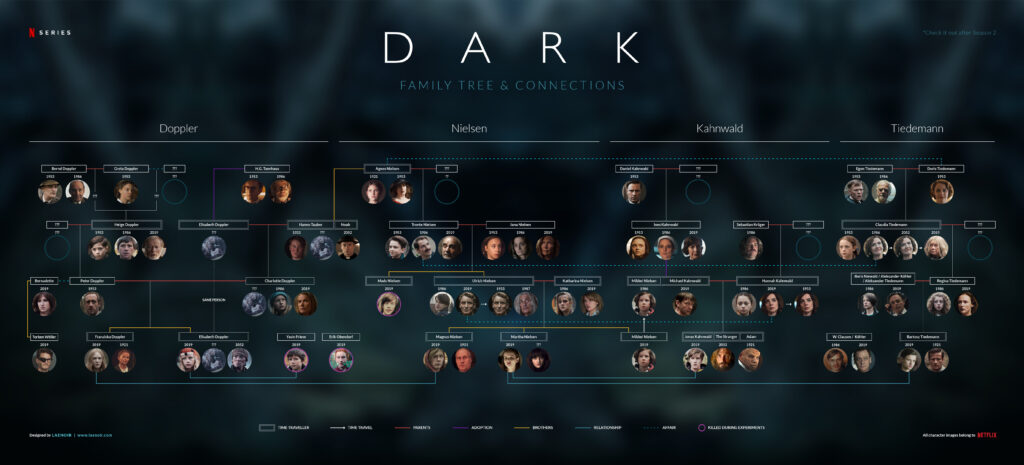
One of the most compelling aspects of “Dark” is its narrative complexity. The show’s plot is meticulously crafted, with every detail, no matter how small, playing a crucial role in the overarching story. This intricacy extends to the characters, whose lives are interconnected in ways that are gradually revealed over the course of the series.
The creators of “Dark” masterfully weave together multiple timelines and character arcs, creating a rich and immersive narrative. The show spans several generations, requiring viewers to keep track of various characters and their relationships. This complexity can be challenging, but the payoff is immense for those who invest the effort.
The realization of how deeply intertwined the characters’ lives are provides a sense of satisfaction that few other shows can match. The intricate web of connections between characters underscores the show’s central themes of interconnectedness and the cyclical nature of time. As viewers piece together the puzzle, they are rewarded with a deeper understanding of the narrative and its underlying philosophical questions.
The series’ approach to time travel is particularly noteworthy. Unlike many other narratives in the genre, “Dark” adheres strictly to the concept of the bootstrap paradox. This paradox suggests that actions taken in the past to alter the present were always part of the timeline, creating an infinite loop where cause and effect are intertwined. This narrative device is masterfully employed, pushing the boundaries of what can be achieved within science fiction.
As the series progresses, viewers are introduced to different timelines, spanning several generations. The narrative complexity is heightened by the fact that characters interact with their past and future selves, creating a rich tapestry of interwoven storylines. This intricate plot demands meticulous attention to detail, encouraging viewers to actively engage with the unfolding mystery.
Unreliable Family knots
In the world of Dark, the concept of family history takes on a whole new dimension. We’re not just talking about dusty photo albums and whispered stories; time travel throws the idea of who our parents and relatives “truly are” into a chaotic loop. Here’s how Dark portrays the disconnect between perception and reality when it comes to families.
Dark’s family tree is a tangled mess, with characters unknowingly marrying ancestors, having children with their own relatives, and repeating patterns across generations. This reflects how the past can haunt us, influencing our relationships even before we’re born. We might idealize our parents, not seeing their flaws or the mistakes they made in their past. Dark reminds us that everyone has secrets, and sometimes, the people we think we know best harbor hidden depths.
The cyclical nature of time in Dark emphasizes how the choices of our ancestors can have profound consequences for generations to come. We see characters struggling to break free from the mistakes of their parents and grandparents, mirroring the real-life challenges of overcoming family patterns or generational trauma.
Dark’s exploration of family history isn’t just about sci-fi twists; it’s a metaphor for our own experiences. We can see parallels in the way we construct narratives about our families, the secrets that get swept under the rug, and the generational patterns that repeat themselves. Dark compels us to question what we think we know about our families and to be open to the possibility that the past is far more complex and interconnected than we ever imagined. By exploring these themes, Dark reminds us that family is a powerful force, binding us across time in ways we can only begin to comprehend.
Exploring Human Nature: Themes and Characters
Self-Destruction and Inner Conflict
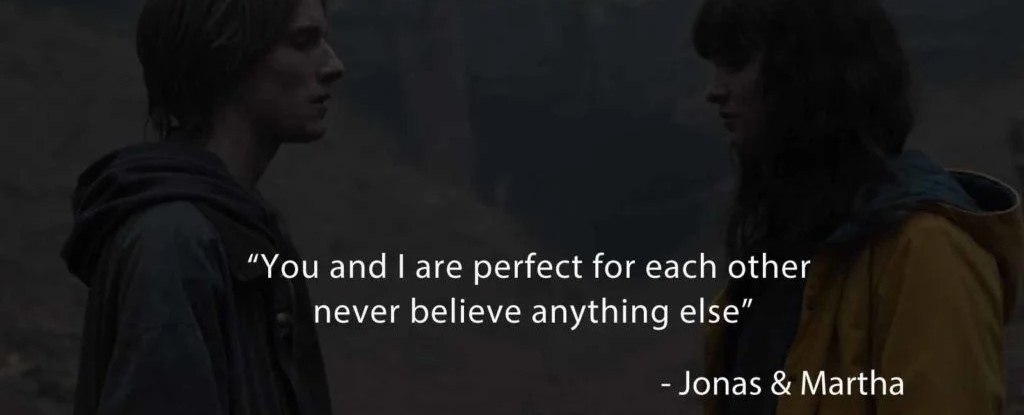
One of the most compelling aspects of “Dark” is its exploration of the darker aspects of human nature. The character of Adam, the older version of Jonas, embodies the theme of self-destruction. Despite knowing that his younger self loves Martha deeply, Adam kills her, believing it to be a necessary step in breaking the cycle. This act of betrayal highlights the internal conflict and self-destructive tendencies that can arise when individuals are consumed by a single-minded pursuit of their goals. The line “We are perfect for each other, never believe anything else” serves as a poignant reminder of the love and connection that once existed, contrasting sharply with the actions driven by despair and resignation.
Parental Sacrifice and Unwavering Determination

“Dark” also delves into the lengths to which parents will go for their children. Claudia Tiedemann’s journey through multiple universes to save her daughter Regina is a testament to the boundless love and sacrifice that define parenthood. Similarly, Ulrich Nielsen’s relentless search for his son, even while trapped in a different timeline, underscores the enduring hope and determination that parents hold onto, no matter the odds. These storylines highlight the profound emotional bonds between parents and their children, showcasing the depths of their commitment and the sacrifices they are willing to make.
The Inescapability of Identity

The character arc of Mikkel Nielsen, who becomes Michael Kahnwald, illustrates the theme of inescapable identity. Despite the drastic changes in his life circumstances, Mikkel/Michael cannot escape the fundamental aspects of who he is. His suicide is a poignant acknowledgment of his internal struggles and the sacrifices he makes for the greater good of his son, Jonas. This storyline reflects the broader theme of how individuals grapple with their identities and the aspects of themselves that remain constant, despite the passage of time and external changes.
Jealousy and Desire as Destructive Forces
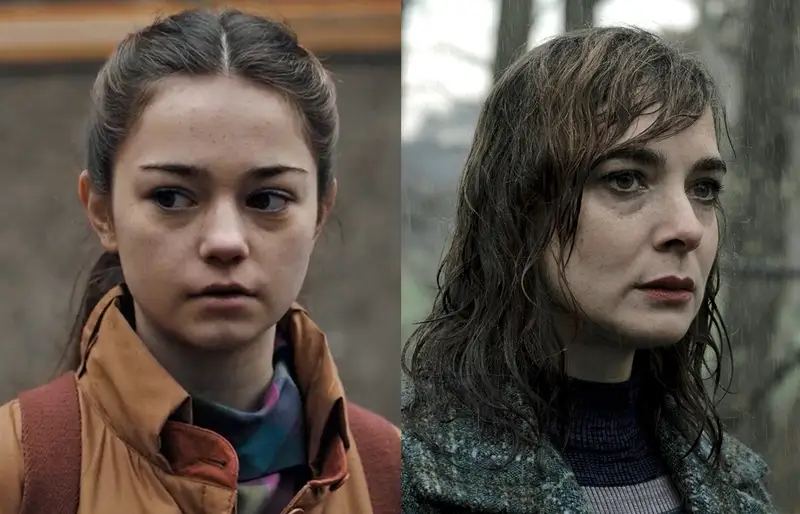
Hannah Kahnwald’s character arc serves as a cautionary tale about the destructive power of jealousy and unfulfilled desire. Her lifelong obsession with Ulrich Nielsen, stemming from their youth, leads to a series of actions that ultimately destroy the lives of those around her. From sabotaging her relationships to betraying Ulrich and her partners, Hannah’s actions are driven by an insatiable desire that consumes her. This exploration of jealousy and desire provides a stark reminder of how these emotions can wreak havoc on individuals and their families.
Innocent Victims of Circumstance
“Dark” poignantly illustrates how individuals can become victims of circumstances beyond their control. Mikkel/Michael’s rough childhood and eventual suicide underscore the tragic reality of being caught in a web of events that one did not create. Similarly, Jonas’s journey is marked by a series of events that shape his destiny, often leaving him with little control over his own life. These characters’ experiences highlight the broader theme of how individuals navigate the challenges and hardships imposed upon them by forces beyond their control.
The Unseen Struggles of Parenthood
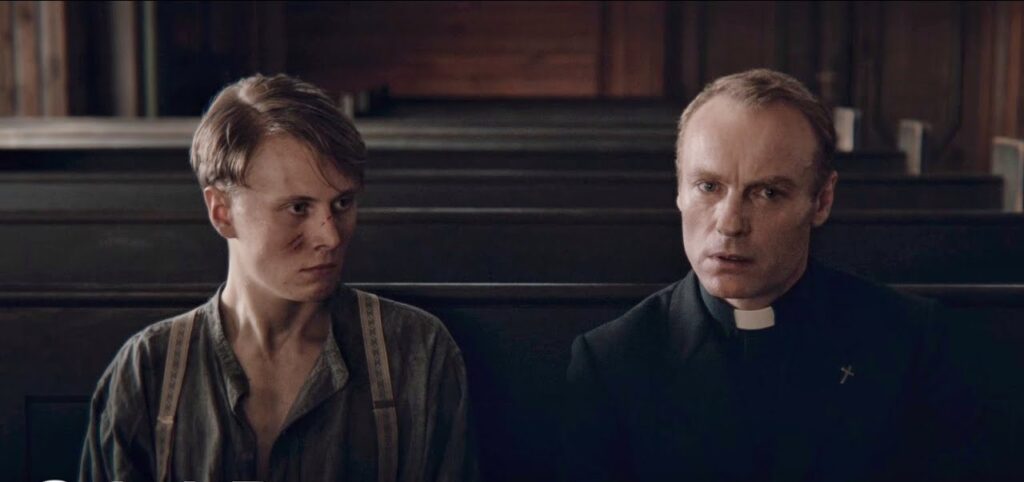
Noah’s relentless search for his daughter Charlotte is a heart-wrenching portrayal of a father’s love and determination. Despite the numerous obstacles and missed opportunities, Noah’s unwavering commitment to finding his daughter underscores the emotional depth and resilience of parents. This storyline serves as a powerful reminder of the unseen struggles and sacrifices that parents endure in their quest to protect and reunite with their children.
The Quest for Redemption and Reconciliation

The character of H.G. Tannhaus, who creates a time machine in an attempt to bring back his family, embodies the theme of redemption and reconciliation. His tragic backstory and the profound loss he experiences drive him to seek a way to alter the past and reunite with his loved ones. Tannhaus’s journey reflects the broader human desire for redemption and the lengths individuals will go to reconcile with their past and seek a better future.
A Cultural Phenomenon
“Dark” has not only captivated audiences but has also become a cultural phenomenon. The show’s intricate plot and complex characters have inspired countless fan theories, discussions, and analyses. Online forums and social media platforms are filled with debates and interpretations of the show’s many mysteries and philosophical themes.
The series has also spawned a dedicated fanbase that continues to celebrate its legacy. Fan art, merchandise, and even fan fiction have flourished, demonstrating the lasting impact of “Dark” on popular culture. The show’s ability to inspire such creativity and engagement is a testament to its profound impact on viewers.
Moreover, “Dark” has set a new standard for storytelling in the digital age. It has demonstrated that television can be a medium for complex, thought-provoking narratives that challenge viewers intellectually and emotionally. The show’s success has paved the way for other ambitious, high-concept series, encouraging creators to push the boundaries of what can be achieved in the world of television.
Conclusion

“Dark” is a show that defies easy categorization. It’s a science fiction thriller, a philosophical meditation, and a complex character drama all rolled into one. Its intricate narrative, profound themes, and exceptional production quality make it a standout in the crowded landscape of television series.
For those who are willing to invest the time and effort to fully engage with its story, “Dark” offers an unparalleled viewing experience. It’s a show that challenges, captivates, and ultimately rewards its viewers with a narrative that is as thought-provoking as it is entertaining. In exploring the depths of human nature, the mysteries of time, and the complexities of interconnected lives, “Dark” has rightfully earned its place as the best web show of all time.

